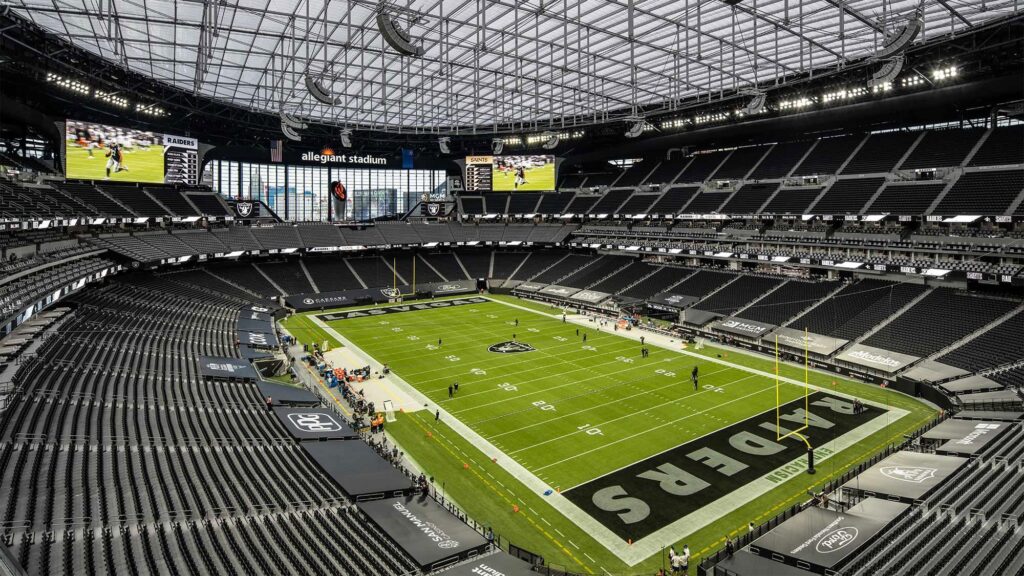NFL franchises serve as significant economic engines for their host cities, driving local economies through tourism, job creation, and increased tax revenues. The extent of the financial impact can vary based on factors such as market size, stadium location, and the team’s popularity. However, it is evident that NFL franchises contribute substantially to the economic vitality of cities, particularly those with few other major sports or entertainment draws. This article explores how NFL teams influence local economies, focusing on tourism, employment, tax revenues, and business activity.
Tourism and Visitor Spending
NFL games attract not only local fans but also a considerable number of out-of-town visitors who come to watch their favorite teams play, especially during marquee matchups or when the game holds significant playoff implications. Visiting fans contribute to the local economy by staying in hotels, dining at restaurants, and spending on transportation and entertainment. The economic benefits of hosting an NFL team are amplified in cities that hold events like the Super Bowl, where the influx of tourists can generate hundreds of millions of dollars in additional revenue.
For example, the Dallas Cowboys generate an estimated $620 million in annual economic impact, with around 85,000 visitors attending each game. This spending boosts the hospitality sector, leading to increased hotel bookings and restaurant revenue. Cities with smaller NFL markets, like Green Bay, also experience significant boosts, albeit on a smaller scale, where local businesses heavily rely on game-day traffic for a substantial portion of their yearly sales.
| Team | Annual Economic Impact (USD Millions) | Average Visitors Per Game | Hotel Revenue (USD Millions) | Restaurant Revenue (USD Millions) |
|---|---|---|---|---|
| Dallas Cowboys | 620 | 85,000 | 210 | 160 |
| New England Patriots | 400 | 70,000 | 150 | 120 |
| Green Bay Packers | 300 | 50,000 | 90 | 80 |
| Las Vegas Raiders | 500 | 75,000 | 170 | 140 |
| Kansas City Chiefs | 350 | 60,000 | 120 | 110 |
Employment and Economic Activity
The presence of an NFL team helps create numerous job opportunities, not only through direct employment with the franchise but also indirectly in sectors like hospitality, retail, and transportation. During football season, game days see a spike in demand for temporary labor to handle increased customer traffic. This effect is particularly evident in stadium-adjacent neighborhoods, where bars, restaurants, and shops experience heightened business.
The impact of job creation extends beyond stadium operations, encompassing everything from stadium construction to local retail during peak times. Large stadiums that host more than just NFL games, such as concerts or college football events, further boost employment by increasing year-round economic activity.
Tax Revenue and Public Spending
The tax revenues generated by NFL games come from multiple sources, including sales taxes on tickets, merchandise, and food and beverage purchases. Additionally, hotel occupancy taxes increase significantly during the football season, especially in cities where football tourism is a major draw.
Municipal governments often cite these increased tax revenues as a justification for investing in stadium construction or upgrades, arguing that the long-term economic benefits outweigh the initial costs. For example, in cities like Dallas and Miami, annual tax revenue from NFL-related activities can range from $65 to $85 million, a significant financial contribution that helps fund public services.
| City | Sales Tax Revenue (USD Millions) | Hotel Tax Revenue (USD Millions) | Total Annual Tax Impact (USD Millions) |
|---|---|---|---|
| Dallas | 45 | 30 | 75 |
| New York | 50 | 35 | 85 |
| Chicago | 40 | 28 | 68 |
| Miami | 42 | 25 | 67 |
| San Francisco | 35 | 20 | 55 |
Impact on Local Businesses
Local businesses located near NFL stadiums often experience surges in revenue on game days, with increased foot traffic driving sales. For many small businesses, the football season can represent a significant portion of annual income, particularly in cities with strong football cultures. The economic effects extend to non-game days as well, as stadiums host other events that continue to draw visitors.
Restaurants, bars, and retail stores experience pronounced sales increases, with some establishments seeing revenue boosts of up to 50% on game days compared to non-game days. This impact demonstrates how the economic benefits of NFL franchises permeate throughout the local economy, even affecting businesses not directly associated with the sports industry.
Stadium Construction and Financing
The construction or renovation of stadiums is often a contentious topic due to the significant costs involved. However, these projects can drive economic growth through the creation of construction jobs and by attracting future events beyond NFL games. Cities often justify public financing of stadiums by pointing to the increased tax revenues and local spending they expect the stadium to generate.
While privately funded stadiums, such as SoFi Stadium in Los Angeles, represent a shift away from relying on taxpayer dollars, others, like Allegiant Stadium in Las Vegas, still utilize a mix of public and private funds. The debate over public financing continues, but it is clear that modern stadium projects are a key part of urban development strategies aimed at maximizing economic benefits.
| Stadium | Total Cost (USD Billions) | Public Funding (%) | Private Funding (%) | Year Opened |
|---|---|---|---|---|
| SoFi Stadium | 5.5 | 0 | 100 | 2020 |
| Allegiant Stadium | 1.9 | 39 | 61 | 2020 |
| Mercedes-Benz Stadium | 1.6 | 32 | 68 | 2017 |
Conclusion
NFL franchises bring substantial financial benefits to their host cities, providing boosts to tourism, creating jobs, and generating significant tax revenue. While the economic impact varies from city to city, the presence of an NFL team often acts as a catalyst for economic development. Although debates about public financing for stadiums continue, the overall economic contributions of NFL franchises are undeniable.

